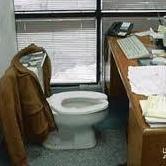Leaderboard
Popular Content
Showing content with the highest reputation on 03/08/2015 in Posts
-
Something funny to help us through the time change. http://www.scarymommy.com/daylight-saving-trailer-spring-forward-edition/4 points
-
"However, in the case of a building structure or building system, the taxpayer must expect to perform the activities more than once during the ten-year period beginning when the building structure or building system is placed in service by the taxpayer (Reg. §1.263(a)-3(i)(1)(i) and (ii))." You should not expect to replace a Heat Pump more than once in a 10 year period. The life expectancy is between 12 - 15 years with proper maintenance.3 points
-
Terry, yes, the n/d life insurance would be on 1120, pg 3, line 16c; on the M-1 line 3; and on the K-1, box 16, code C. Also yes, the total compensation paid + health insurance should agree with the 1120S, lines 7 and 8, unless some portion of those are reported in COGS. The total of all of that should agree with box 1 of the W-2s, and those should tie in to the 941s. That should be true unless the company also has a retirement plan that allows deferrals such as a 401K, SEP, or SIMPLE IRA plan that would be reported elsewhere on the 1120S. You might have to amend the 4th qtr 941 and W-2s if they were prepared incorrectly.2 points
-
Terry, I'm so confused on the S-Corp health insurance, that I won't even try to answer. There are way smarter people than me on here. The life insurance should be officer's life insurance and is not tax deductible. It should be a Schedule M-1 item.2 points
-
I think I'd interrogate the client, and ask him what percentage he considers the seminars to be: 1) training him for this job, or 2) maintaining / improving his job skills I would carefully explain training vs maintaining/improving. I would not tell him why I'm asking until after I got his answer. I do this type of thing with people who give me what I suspect are business plus commuting miles as business miles. I explain commuting, do not tell them that commuting miles are not deductible, and ask them how many of these miles are commuting. Cause, you know, the IRS wants to know. I do explain that commuting miles are not deductible after I get an answer.2 points
-
Always one. Just when you hit the button, they call and say - "oh - i forgot to tell you....." :pop: :pop:1 point
-
As I understand it, you have to have MEC for everyone in your "tax family." This means all dependents as well as anyone you are eligible to claim as a dependent (even if you don't). This is from the seminars I have taken.1 point
-
google some charts, I believe goodwill and salvation army have them available1 point
-
We're back to the old rules on S corp shareholders and health insurance thru 2015, with the hopes that Congress will get their act together and make it permanent. http://www.calt.iastate.edu/article/irs-notice-2015-17-provides-some-limited-aca-penalty-relief-small-employers1 point
-
Terry, the way I understand it, for companies having less than 2 employees, continue to treat it as it was in 2013. After the guidance was issued in 2015-17, health insurance paid or reimbursed for the more-than-2% shareholder is to be treated as wages subject to FWT, reported in box 1 only, NOT subject to FICA or Medicare in boxes 3 or 5. It is also allowed as a deduction on page 1 of the 1040 as SEHI. This last topic discussed that, especially toward the end, and has a link to the 2015-17. At least that is how I think it is now. Nothing like working with shifting sands underfoot, eh? I agree with NECPA about the officer's life insurance. Not deductible.1 point
-
I had no qualms about taking COBRA payments as SEHI when I was on it. The Medicare ruling on SEHI pretty much quashed the name of the business qualification IMHO.1 point
-
http://www.jag.navy.mil/organization/documents/tax/TIM%2002-10%20Encl%202.pdf http://www.taxadmin.org/Fta/rate/s_475.pdf Her income should not be taxable in Guam, but will be taxable in AR. She should file a Tax Exemption Certificate For Military Spouse to avoid being taxed in Guam. They should file an AR1000F. His military income goes on line 9a and is totally exempt. Military Pay Exemption (Act 1408 of 2013) Creates a 100% exemption from income tax for service pay or allowance received by an active duty member of the armed forces for tax years beginning on or after January 1, 2014. Active duty includes all members of the armed forces, including the National Guard and Reserve Units.1 point
-
many, many years ago the SMR did drop after a certain number of years of using the it on the same vehicle. The reason was based on exactly what you said - the assumed depreciation.1 point
-
look at the trial balance worksheet under the Accountants tab on top, its not the same at TB under reports.1 point
-
ROUTINE MAINTENANCE SAFE HARBOR KEY CHANGES The routine maintenance safe harbor is expanded to include buildings. Network assets are excluded from the safe harbor The costs of performing certain routine maintenance activities on a unit of property, including a building structure or one of the enumerated building systems, are currently deductible under a routine maintenance safe harbor (Reg. §1.263(a)-3(i)). This safe harbor is not elective. Under the safe harbor, an amount paid is deductible if it is for ongoing activities that, as a result of the taxpayer’s use of the unit of property, the taxpayer expects to perform to keep the unit of property in its ordinarily efficient operating condition. In the case of a building, the building structure and each building system is treated as a separate unit of property (Reg. §1.263(a)-3(i)(1)(i) and (ii)). The activities are routine only if, at the time the unit of property is placed in service by the taxpayer, the taxpayer reasonably expects to perform the activities more than once during the class life of the unit of property (that is, during the recovery period prescribed for the MACRS alternative depreciation system (ADS)). However, in the case of a building structure or building system, the taxpayer must expect to perform the activities more than once during the ten-year period beginning when the building structure or building system is placed in service by the taxpayer (Reg. §1.263(a)-3(i)(1)(i) and (ii)).1 point
-
It might be a business, if he's serious about it. But do remind him of the 'reasonable and necessary' rule, 8k in expense for $600 in sales is hard to call 'reasonable and necessary'. But neither does it fall into the 'hobby' category, so I'd give him at least one year of full deductions IF he's going about it in a 'business-like manner', good records, no mixing family visits as business travel, etc.1 point
-
I think your clients are on a different level than mine. I can't even get mine to realize that when your November Income Statement says you have a net profit of $100,000 it's a really bad idea to sign up for SS at age 62.1 point
-
I found it by accident... went back into an efiled return; didn't even change anything - but was there longer than auto-save time. Return was "changed" and that caused my efile to reject. Fine once I resubmitted. Used it later, though, on purpose for JUST the reason you gave. Hit the button, and five minutes later an email, "oops we just got" form whatever. I was SO glad to see that "EF Reject" notice!1 point
-
Ah, inventory, good catch Mr. Davis. I have managed to avoid clients with inventory. Well, except for the optician with some contacts for sale, but I know he found his ending inventory on his own ceiling, and he's gone now. He was the only one willing to pay for my time to adjust his QB file after preparing his returns (or even to LET me adjust), though, and did his own payroll beautifully. So, I miss him. As for property tax, I can't seem to get them to believe equipment isn't an expense. So, for the most part, I gave up. I print their Equipment detail and prepare the income tax returns and property tax returns. But, if I adjust their QB file and explain why, leave them written instructions on where to put what, they don't continue. (QB prefills the transactions for them, so it's always SALY.) The DIY owners/wives or PT bookkeepers use QB for money in/money out to record checks/charge cards and not for accounting. (Had one call me to ask where to put large check the shareholders/H/W wrote to themselves at tax time. I'd set up an account labeled with their names and 95/5% for distributions so bookkeeper didn't have to do the math or even understand QB terminology. I explained, as I do about twice/year, to put it in 95/5 and I would break it up into their names at tax time. I found it under Marketing expenses!) CT property tax forms ask about the amounts paid to ICs/Forms 1099-MISC, consumable office supplies, etc. So, my biggest issue with property tax forms has been to get Postage/Shipping in it's own account and out of Office Supplies to not inflate the expenses we have to report. Yeah, I've given up. I get a Backup. Do my own thing with it for my tax prep purpose. I pick one issue each year per client and work on that. Since late 2013, have been working with one on the $500 threshold for Equipment. Just worked on that firm yesterday to start their returns, and moved all the little amounts out of Equipment. And, Repairs was actually Office Cleaning, so I think I'll insist on a name change on that account. And, don't get me started on the ones who bring me a Quicken file.1 point
-
Here's an IRS page on Direct Selling businesses. I didn't read it. http://www.irs.gov/Businesses/Small-Businesses-&-Self-Employed/Retail-Industry-ATG-Chapter-3-Examination-Techniques-for-Specific-Industries-Direct-Sellers1 point
-
If there are no depreciable assets, I think you got it, my friend. If there ARE assets, I enter assets individually with date of purchase so it's easier on me come time to do the return. For example, I might have Account # 177 - HP Computer 4/16/14. I also enter things like owner health insurance on the Balance Sheet for my own sake. Isn't a perfect world great and you have total control because you did it all, and there are no creative, horrific entries to unwind?1 point
-
My bad!! It's the "Google Search" -- middle tab between "Calendar" and "MyATX" in the main title lines.1 point
-
It will also contain negative A/R if recurring invoices post automatically on, say, January 1st -- but payments pre-dated that (for example, business space rent).1 point
-
I agree with michaelmars and Jack from Ohio. He is in this with a profit motive. You can see the likely train wreck -- but he can't; he still thinks he's going to strike it rich. Who knows, maybe he will be the one who does! I know one person who actually makes enough from selling Mary Kay to live on. That doesn't mean all the tried-and-failed women in her downline weren't serious - it means they didn't have the (1) natural market this lady (former nurse) had, (2) the time/money available to put in the HUGE startup time investment, or (3) the go-for-the-jugular sales push (or ability). But they *wanted* to be profitable.1 point
-
It's just me. I find it MUCH easier to read a trial balance than a P&L and/or BS. I guess I am just old school and was brought up in this business creating the TB by hand before the IS and BS could be prepared.1 point
-
if you use the accountants version you have a "working trial balance" I demand that from every preparer here, that way I can see if any item was created by the transactions or by journal entries. Also I print out the adjusting entries, just makes it easier for next year reversals. Comparative BS and PL. You don't really need to compare trial balances if your opening RE matches you prior ending. On the Working TB there is a place for notes so for example, accrued expenses, you can list what is in that account right there. Us old timers prepared worksheets like this for every client, people just used to computer programs don't really see what they tell you but they tell yu more than anything else.1 point
-
I knew my friend Joe D would show his set up. He has a "normal" desk which faces the other direction that he meets the clients and faces them. My arrangement, would be to the side, so that the monitors are 90 degrees to the clients. Or more like 60 degrees so they can not see what is on them. Plus one that does face them for tax planning or Qbooks training... Rich1 point
-
Do you play audit roulette in your practice as when to follow tax law? I don't.1 point
-
1 point
-
Animals that accidentally saw you naked... http://fellowshipoftheminds.com/2015/03/06/animals-who-accidentally-saw-you-naked/1 point
-
Glad you liked the discussion. I wasn't sure if it was a good idea to bring this up right in the middle of the tax time crunch, so it's nice to see that it generated some interest.1 point
-
Revised Publication 546 (How to Depreciate Property) is hot off the press! I was, originally, relieved to see that IRS revised the publication until I got to a section on page 14 of the publication. Evidently, the new rules and regs are clear as mud to them as well. "Additional guidance. For additional guidance and special procedures for changing your accounting method, automatic change procedures, amending your return, and filing Form 3115, see Revenue Procedure 2015-13 on page 419 of the Internal Revenue Bulletin 2015-5 and Revenue Procedure 2015-14 on page 450 of the Internal Revenue Bulletin 2015-5, available at www.irs.gov/irb/ 20155_IRB/index.html. (Note. Revenue Procedure 2011-14 is modified by Revenue Procedure 2014-17 and Revenue Procedure 2014-54. For more information, see Revenue Procedure 2014-17 on page 661 of Internal Revenue Bulletin 2014-12, available at www.irs.gov/irb/ 201412_IRB/ar09.html and Revenue Procedure 2014-54 on page 675 of Internal Revenue Bulletin 2014-41, available at http://www.irs.gov/irb/201441_IRB/ar14.html.)For a safe harbor method of accounting to treat rotable spare parts as depreciable assets, see Revenue Procedure 2007-48 on page 110 of Internal Revenue Bulletin 2007-29, available at www.irs.gov/irb/200729_IRB/ ar13.html."1 point
-
http://www.irs.gov/Businesses/Small-Businesses-&-Self-Employed/Tangible-Property-Final-Regulations1 point
-
The age restrictions only apply if there is no qualifying children. So if the disabled adult child meets the criteria to be a qualifying child client is eligible for EITC.1 point
-
Can't file single, Jack. You look up the regs. Only pertains if there are kids allowing for HOH.1 point
-
For her to file HOH does NOT require "decree of separate maintenance." The regulations only state that they must not live together the last 6 months of the year. File her HOH and if the children are living with her, claim them as dependents as well. BIG misconception. The regs do not require any legal separation document to be eligible for HOH.1 point
-
Hey, here's a good one. I think the fine is "only" $100,000, but we don't care: http://www.ehow.com/info_7961824_happens-file-single-married.html1 point














